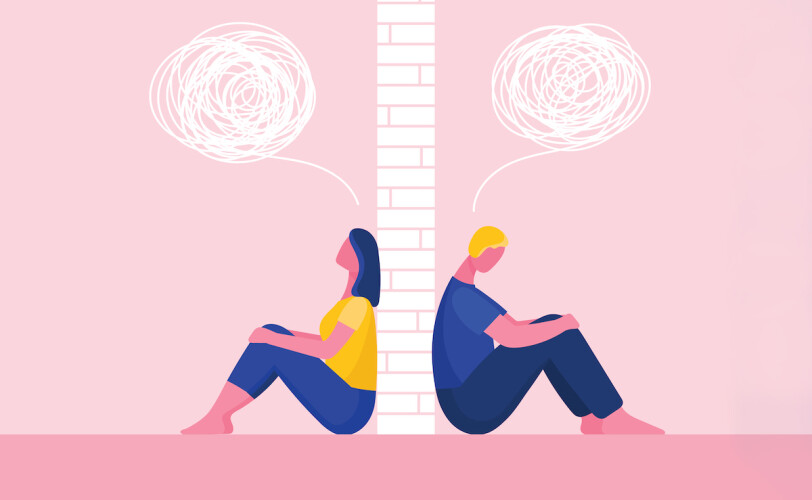Everyone feels lonely at times, but long periods of loneliness or social isolation can have adverse physical and mental health consequences. Loneliness can become a mental health issue when it persists over time (or is experienced intensely) – causing a stress response within the body. This makes sense because humans are wired for social connection. Loneliness has also been connected to higher levels of anxiety, depression, and suicide rates; and linked to poor cardiovascular health and cognitive function. Long-term loneliness can have a severe impact on our health – estimated to shorten a person’s life by 15 years, equivalent in impact to smoking 15 cigarettes per day.
Feeling socially connected is crucial to our physical and mental wellbeing. Yet, loneliness is very common, with one in four Australians reporting feeling lonely each week.
If you are struggling with loneliness, or if you know someone who is, you are not alone. Please read on to learn more about how to reduce this feeling and rebuild connections.
What is loneliness?
Loneliness can be understood as that distressing feeling that arises when there is a mismatch between the social connections you would like to have and those you feel you have. Loneliness is an emotion that can be thought of as a way of showing us that that there is something unsatisfying, or missing in terms of companionship, connection or belonging. It can drive us to take action to narrow that gap and get our social and emotional needs met.
The circumstances that can lead to loneliness for one person may be quite different for another. For example, someone might live a solitary life, feel content with that and not feel lonely, while others can have an active social life but experience these feelings of isolation within themselves.

The difference between loneliness and being alone
In short, being alone is the physical state of not being with another person, while loneliness is the psychological state, for example when the social contact you have isn’t fulfilling for you. We can feel lonely if we want to connect with someone, but for whatever reason, either we or that other person is emotionally or physically unavailable.
Being alone can be relaxing and rejuvenating to some people. However, prolonged social isolation refers to experiencing solitude that is unwanted and unhealthy.
Understanding the difference between the two may help you better cope with your own situation. By identifying what might be contributing to your feelings of loneliness, you can think of different ways to approach this problem and build connection with others.
Signs your health is being affected by loneliness
Remember that we all feel lonely from time to time, and this is normal. However, when these feelings are longstanding, they can negatively impact your wellbeing.
What might be the signs that you are struggling with loneliness? There are some common signs which indicate that loneliness and isolation are affecting us in a negative way:
- Feelings of disconnection with others
- Feeling alone, even when you are in the presence of others
- Lacking in energy and/or motivation
- Low mood – feeling sad, worthless, teary, hopeless or helpless.
- Bodily reactions such as headaches, muscle tension, upset stomach, or worsening medical conditions
- Sleep problems – difficulty falling or staying asleep, or oversleeping
- Changes in appetite, weight loss or gain
- Increased alcohol consumption, smoking or use of medications/drugs
- Negative thoughts about yourself or other people
- Thoughts of suicide.

What to do about loneliness
There isn’t a one-size fits all solution to loneliness, but here are some strategies that may help you:
- Validate what you’re feeling – it can help to talk to yourself like you would a friend. Be kind and compassionate to yourself and then try to do something to manage your feelings. For example, “I’m feeling lonely and down today, which is really hard. What can I do right now that I might enjoy?”
- Consider joining a club, organisation, volunteer group or online community. This will help you to create new friendships or maintain meaningful friendships.
- Learn something new or try a new hobby that involves other people. This could be a sporting team, musical group, language or art class, book club or anything that piques your interest.
- Set a daily routine – one that includes enjoyable activities and time for self-care.
- Remind yourself it’s okay to be alone – try to value spending time on your own as well as trying to meet people. You might enjoy your own company more than you think.
- Stay active – exercise releases ‘happy’ hormones which increase feelings of wellbeing. It’s also a great way to meet people
- Spend time outdoors – spending time in nature can boost your mood and open up opportunities to meet others, for example at your local park or walking around the neighbourhood. Spending time indoors, but around other people, can also provide incidental ways of meeting others, like at cafes or libraries. In general, spending more time outside of home increases social opportunities.
- Consider organised events: it can often be difficult to meet new people organically. Do a search in your area for hosted meet-ups such as Speed Friending. These social events are designed to help adults make new friends.
- Take the initiative to smile and make eye contact. While this may seem simple, inviting and friendly non-verbal communication is a helpful first step.
- Reconnect with people you’ve lost touch with, even if it’s been a long time.
- If you have been invited to an activity or event, say “yes”. You don’t know where this might lead and you could surprise yourself
- Closeness and familiarity are built up over time. Be willing to share about yourself, invest in getting to know others and growing the friendship.

How can I help someone who is feeling lonely?
Given loneliness is an epidemic, even if you aren’t experiencing loneliness yourself, chances are you may know of someone who is, or suspect someone could be.
- Strike up conversations with your neighbours, fellow students or colleagues, or others whom you see regularly
- Be inclusive in thinking of and inviting others to social gatherings
- If meeting in person is difficult, use technology to find ways to connect instead
- Encourage them to step outside their comfort zone and try new things
- Look out for those who live alone, have migrated, live apart from their usual supports or whose life circumstances make it harder for them to connect
- Be patient with those who are shy or have anxiety about socialising, they may just need a bit more time to become comfortable
Remember: you are not alone
The solutions in an epidemic are never just on one person’s shoulders. All of us can do something to help relieve loneliness. Whether you are experiencing loneliness yourself or know someone who is, there are steps you can take (or help someone else to take) to have better quality social connections, which will make you feel more satisfied, meet your social needs and have positive effects on your health.
Where to go for professional support for loneliness
Below are some places to go for information and support:
- Beyond Blue – a free helpline provides advice and support via telephone – 1300 22 4636 and Beyond Blue – Web Chat (between 3pm-12am)
- Mensline Australia – 1300 789 978
- Kids Helpline – 1800 55 1800
- FriendLine – for a cuppa and a conversation (state based numbers)
- Ending Loneliness Together Resources
For more expert tips and free online tools to help you navigate a challenging time, head to our Coping Tools page.


